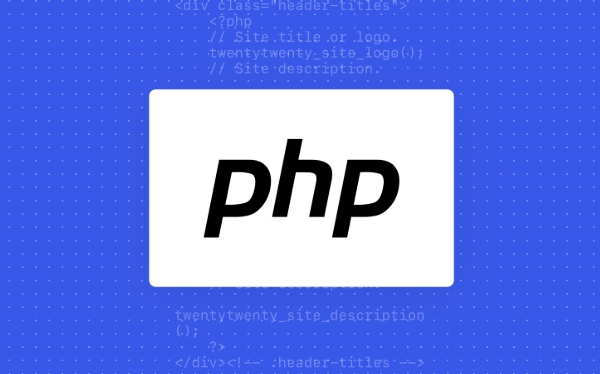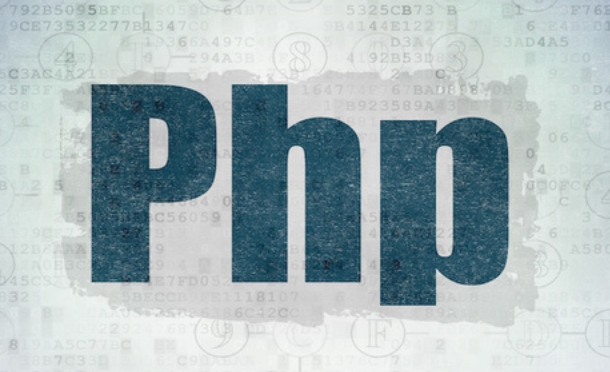Setting Up Your PHP Development Environment
Jul 16, 2025 am 02:37 AMThe key steps to building an efficient PHP development environment are as follows: 1. Install PHP and Web servers, such as Apache or Nginx, and with MySQL, you can use XAMPP, Laragon or system package management tools; 2. Select a suitable editor such as VS Code or PHPStorm, and install necessary plug-ins to improve efficiency; 3. It is recommended to use Docker to configure the local environment and start the complete service stack with one click through the docker-compose.yml file; 4. Configure debugging and logging tools, such as enabling error reporting, using Xdebug and Monolog to ensure a smooth development process.

It is not difficult to quickly build an efficient PHP development environment, but there are many details. The key is to choose the right tools, configure the basic dependencies, and ensure the smooth development process.

Install PHP and Web Server
To start PHP development, the first step is to install PHP itself and a web server. The most common combination is Apache or Nginx, which combines PHP and MySQL (or MariaDB) to form a LAMP (Linux) or WAMP (Windows) environment.
- If you are developing on Windows, consider using XAMPP or Laragon, which are one-click installation packages, including Apache, MySQL, PHP, and phpMyAdmin.
- Linux users can use apt (Ubuntu) or yum (CentOS) to install.
- macOS users recommend using Homebrew to install PHP and related components.
After the installation is completed, remember to test whether PHP is running normally: enter php -v on the command line, and if you can see the version number, it means that the installation is successful.

Use a code editor or IDE
Choosing a convenient editor or integrated development environment (IDE) can greatly improve efficiency. Common options are:
- VS Code : Lightweight, rich plug-ins, suitable for most projects.
- PHPStorm : Powerful, specially designed for PHP, with its own debugging, version control and other functions.
- Sublime Text / Atom : It can also be used, but the plug-in ecosystem is not as active as the previous two.
It is recommended to install the PHP Intelepense plug-in in VS Code, which provides automatic completion, syntax checking, class jumping and other functions, which is very helpful to daily development.

Configure the local development environment (Docker is recommended)
Docker is a good choice if you want your local environment to be consistent with your production environment or want to avoid the embarrassment of "can run on my machine".
You can quickly build a complete PHP environment through the docker-compose.yml file:
version: '3'
services:
web:
image: nginx:latest
Ports:
- "8080:80"
php:
build: ./php
Volumes:
- .:/var/www/html
db:
image: mysql:5.7
environment:
MYSQL_ROOT_PASSWORD: rootThis way you can start the entire service stack with one click, and the isolation is better, making it easier for team collaboration.
Set up debugging and logging tools
During development, viewing error messages and debugging variables are essential. you need to:
Open the error report in
php.ini:display_errors = On error_reporting = E_ALL
Use Xdebug for breakpoint debugging, which can be performed step-by-step with PHPStorm or VS Code.
Use logging tools such as Monolog to write errors to a file for easier later inspection.
In addition, variables can be printed temporarily in the code, such as:
echo '<pre class="brush:php;toolbar:false">'; print_r($data); echo '';
Although simple, it is practical when there is no debugger.
Basically that's it. Although there are many steps and each step is not complicated, it will make your development process more worry-free.
The above is the detailed content of Setting Up Your PHP Development Environment. For more information, please follow other related articles on the PHP Chinese website!

Hot AI Tools

Undress AI Tool
Undress images for free

Undresser.AI Undress
AI-powered app for creating realistic nude photos

AI Clothes Remover
Online AI tool for removing clothes from photos.

Clothoff.io
AI clothes remover

Video Face Swap
Swap faces in any video effortlessly with our completely free AI face swap tool!

Hot Article

Hot Tools

Notepad++7.3.1
Easy-to-use and free code editor

SublimeText3 Chinese version
Chinese version, very easy to use

Zend Studio 13.0.1
Powerful PHP integrated development environment

Dreamweaver CS6
Visual web development tools

SublimeText3 Mac version
God-level code editing software (SublimeText3)
 How to use PHP to build social sharing functions PHP sharing interface integration practice
Jul 25, 2025 pm 08:51 PM
How to use PHP to build social sharing functions PHP sharing interface integration practice
Jul 25, 2025 pm 08:51 PM
The core method of building social sharing functions in PHP is to dynamically generate sharing links that meet the requirements of each platform. 1. First get the current page or specified URL and article information; 2. Use urlencode to encode the parameters; 3. Splice and generate sharing links according to the protocols of each platform; 4. Display links on the front end for users to click and share; 5. Dynamically generate OG tags on the page to optimize sharing content display; 6. Be sure to escape user input to prevent XSS attacks. This method does not require complex authentication, has low maintenance costs, and is suitable for most content sharing needs.
 PHP calls AI intelligent voice assistant PHP voice interaction system construction
Jul 25, 2025 pm 08:45 PM
PHP calls AI intelligent voice assistant PHP voice interaction system construction
Jul 25, 2025 pm 08:45 PM
User voice input is captured and sent to the PHP backend through the MediaRecorder API of the front-end JavaScript; 2. PHP saves the audio as a temporary file and calls STTAPI (such as Google or Baidu voice recognition) to convert it into text; 3. PHP sends the text to an AI service (such as OpenAIGPT) to obtain intelligent reply; 4. PHP then calls TTSAPI (such as Baidu or Google voice synthesis) to convert the reply to a voice file; 5. PHP streams the voice file back to the front-end to play, completing interaction. The entire process is dominated by PHP to ensure seamless connection between all links.
 How to use PHP combined with AI to achieve text error correction PHP syntax detection and optimization
Jul 25, 2025 pm 08:57 PM
How to use PHP combined with AI to achieve text error correction PHP syntax detection and optimization
Jul 25, 2025 pm 08:57 PM
To realize text error correction and syntax optimization with AI, you need to follow the following steps: 1. Select a suitable AI model or API, such as Baidu, Tencent API or open source NLP library; 2. Call the API through PHP's curl or Guzzle and process the return results; 3. Display error correction information in the application and allow users to choose whether to adopt it; 4. Use php-l and PHP_CodeSniffer for syntax detection and code optimization; 5. Continuously collect feedback and update the model or rules to improve the effect. When choosing AIAPI, focus on evaluating accuracy, response speed, price and support for PHP. Code optimization should follow PSR specifications, use cache reasonably, avoid circular queries, review code regularly, and use X
 PHP creates a blog comment system to monetize PHP comment review and anti-brush strategy
Jul 25, 2025 pm 08:27 PM
PHP creates a blog comment system to monetize PHP comment review and anti-brush strategy
Jul 25, 2025 pm 08:27 PM
1. Maximizing the commercial value of the comment system requires combining native advertising precise delivery, user paid value-added services (such as uploading pictures, top-up comments), influence incentive mechanism based on comment quality, and compliance anonymous data insight monetization; 2. The audit strategy should adopt a combination of pre-audit dynamic keyword filtering and user reporting mechanisms, supplemented by comment quality rating to achieve content hierarchical exposure; 3. Anti-brushing requires the construction of multi-layer defense: reCAPTCHAv3 sensorless verification, Honeypot honeypot field recognition robot, IP and timestamp frequency limit prevents watering, and content pattern recognition marks suspicious comments, and continuously iterate to deal with attacks.
 PHP realizes commodity inventory management and monetization PHP inventory synchronization and alarm mechanism
Jul 25, 2025 pm 08:30 PM
PHP realizes commodity inventory management and monetization PHP inventory synchronization and alarm mechanism
Jul 25, 2025 pm 08:30 PM
PHP ensures inventory deduction atomicity through database transactions and FORUPDATE row locks to prevent high concurrent overselling; 2. Multi-platform inventory consistency depends on centralized management and event-driven synchronization, combining API/Webhook notifications and message queues to ensure reliable data transmission; 3. The alarm mechanism should set low inventory, zero/negative inventory, unsalable sales, replenishment cycles and abnormal fluctuations strategies in different scenarios, and select DingTalk, SMS or Email Responsible Persons according to the urgency, and the alarm information must be complete and clear to achieve business adaptation and rapid response.
 How to use PHP to combine AI to generate image. PHP automatically generates art works
Jul 25, 2025 pm 07:21 PM
How to use PHP to combine AI to generate image. PHP automatically generates art works
Jul 25, 2025 pm 07:21 PM
PHP does not directly perform AI image processing, but integrates through APIs, because it is good at web development rather than computing-intensive tasks. API integration can achieve professional division of labor, reduce costs, and improve efficiency; 2. Integrating key technologies include using Guzzle or cURL to send HTTP requests, JSON data encoding and decoding, API key security authentication, asynchronous queue processing time-consuming tasks, robust error handling and retry mechanism, image storage and display; 3. Common challenges include API cost out of control, uncontrollable generation results, poor user experience, security risks and difficult data management. The response strategies are setting user quotas and caches, providing propt guidance and multi-picture selection, asynchronous notifications and progress prompts, key environment variable storage and content audit, and cloud storage.
 Beyond the LAMP Stack: PHP's Role in Modern Enterprise Architecture
Jul 27, 2025 am 04:31 AM
Beyond the LAMP Stack: PHP's Role in Modern Enterprise Architecture
Jul 27, 2025 am 04:31 AM
PHPisstillrelevantinmodernenterpriseenvironments.1.ModernPHP(7.xand8.x)offersperformancegains,stricttyping,JITcompilation,andmodernsyntax,makingitsuitableforlarge-scaleapplications.2.PHPintegrateseffectivelyinhybridarchitectures,servingasanAPIgateway
 PHP integrated AI speech recognition and translator PHP meeting record automatic generation solution
Jul 25, 2025 pm 07:06 PM
PHP integrated AI speech recognition and translator PHP meeting record automatic generation solution
Jul 25, 2025 pm 07:06 PM
Select the appropriate AI voice recognition service and integrate PHPSDK; 2. Use PHP to call ffmpeg to convert recordings into API-required formats (such as wav); 3. Upload files to cloud storage and call API asynchronous recognition; 4. Analyze JSON results and organize text using NLP technology; 5. Generate Word or Markdown documents to complete the automation of meeting records. The entire process needs to ensure data encryption, access control and compliance to ensure privacy and security.






